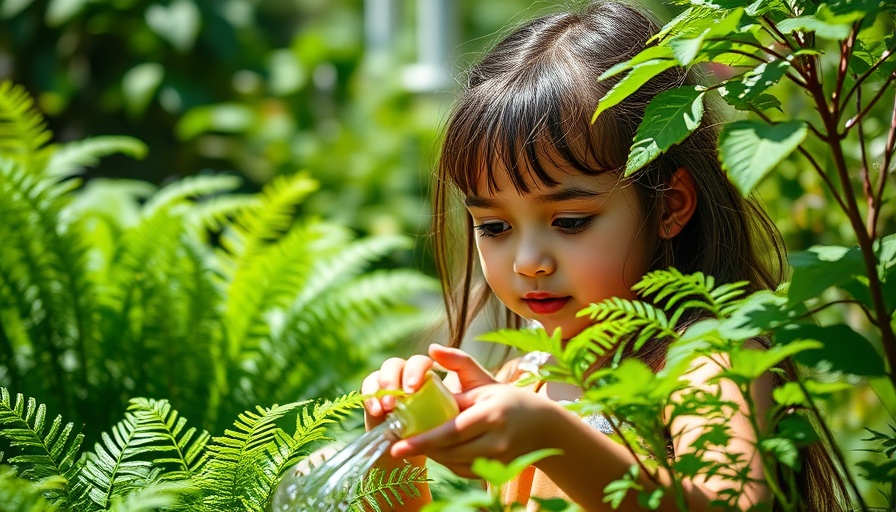
Understanding the Healing Power of Plants for Kids
In today’s fast-paced world, it's essential to equip our children with natural tools for health. Enter the realm of herbal medicine—a time-honored approach that introduces kids to the healing power of plants, fostering a connection that can last a lifetime. Recent insights in herbal practices emphasize the importance of starting children on gentle herbal allies that can offer aid in common ailments, enhancing their overall well-being.
Gentle Helpers: Safe Herbal Practices
Master herbalist Derek Fleming highlights that while adults may require more intense remedies, children often thrive on mild treatments. Incorporating culinary herbs like oregano and peppermint into their diets serves as an excellent introduction to the world of natural healing. Fleming notes, "Kids respond really well to gentle things," which points to the need for safe herbal options that align with their developing bodies.
Sensory Learning: Making Herbs Fun
One of the most effective ways to engage children with herbs is through sensory experiences. Little ones can learn about plants by growing them in their backyard or even a simple window box. The act of crushing oregano to release its spicy aroma or rubbing peppermint leaves will excite their senses and enhance their understanding of herbs' therapeutic properties. This hands-on approach to learning not only builds knowledge but instills a sense of accomplishment and pride.
The Role of Foraging: Education on Nature
For those adventurous enough, wild foraging can also be a fantastic introduction to herbal medicine. However, it’s crucial to identify plants meticulously to avoid confusion with harmful species. Teaching children the magic of yarrow, for example, can be a memorable lesson on how nature provides solutions to common issues, like stopping a bleeding scrape. This practical knowledge can empower kids to recognize the extraordinary benefits found in ordinary plants.
Dosage Matters: Understanding Guidelines
Parents venturing into herbal remedies must also navigate the murky waters of dosages. While there isn’t a one-size-fits-all formula, generalized rates suggest determining dosages based on a child's weight compared to an adult's. For instance, a 50 lb child should take about one-third of the typical dosage for a 150 lb adult. This knowledge ensures safety while exploring the benefits of herbal medicine.
Future Trends: A Growing Interest in Herbalism
The intersection of health and wellness trends is leaning towards a revival of interest in natural remedies. With rising concerns about pharmaceuticals and their long-term effects, many families are looking for alternatives that are both straightforward and effective. As children learn about herbal medicine, they not only enhance their health but may play a role in promoting sustainable practices that support herbalism in future generations.
Why This Knowledge is Vital for Parents
Equipping our children with knowledge about natural healing fosters their independence and confidence when it comes to making health choices. By nurturing an appreciation for plants and their benefits at a young age, parents assure their children are better prepared to navigate health challenges as they grow. Furthermore, this connection to nature could instill a lifelong interest in wellness, encouraging them to be proactive about their health.
As our understanding of the benefits and drawbacks of herbal medicine continues to evolve, it's clear that introducing herbalism into your child's lifestyle can enrich their health journey in exciting ways. So why not dive in and begin exploring the world of plants? If you’re interested in starting this journey with your family, consider reaching out to local herbalists for workshops or consult trusted resources on creating your herbal garden.
 Add Row
Add Row  Add
Add 




Write A Comment